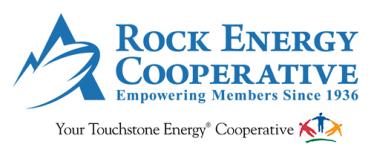Distribution or max demand is the total amount of electricity being used by a consumer during a defined period. Demand is the total amount of electricity being used by a consumer during a defined time period. Demand varies from hour to hour, day to day and season to season. This capacity of electricity is expressed in kilowatts (not kilowatt-hours). Rock Energy Cooperative records demand over a 15-minute interval. The member is charged for the highest 15-minute demand recorded on the meter. After REC reads the meter each month, the demand is reset to zero and the meter starts over, recording the highest 15-minute demand for the next billing period.
Demand charges are based on each member’s maximum 15-minute demand on the cooperative’s distribution system each month. Demand is measured in kilowatts (kW). Members are billed according to kilowatts or kW of demand for their rate.
Demand charges are the way REC pays for the generation capacity it needs to meet the demand of its members. REC pays its wholesale power supplier for energy and demand and bills the members accordingly.
No. Demand billing is used consistently throughout the electric utility industry.
To reduce demand charges, examine your operation.
- What energy-efficient improvements can be made?
- Does all of the equipment need to be running at the same time? If not, what can be turned off while other appliances are running?
- Often there is equipment that is operated infrequently. If this is the case, can some other equipment be turned off while this appliances are running?
It is helpful to know when your meter is read by REC. If possible, wait until after the meter has been read to run appliances that are operated infrequently. For example, you will want to test your irrigation system in the spring, instead of waiting until you need it on a hot day in July, only to discover that it’s not running properly. You know that your meter is read on the 1st of each month. If you haven’t used the system during any part of the month, you may want to wait until after the meter is read for the month to test the system. Even for a short test, you will be billed for the energy used by the irrigation system, plus a demand charge for the entire month. By waiting a few days, you could move that demand charge into a month when you’ll be using the irrigation system anyway, saving an extra month’s demand charges.
Contact the Energy Services Department at Rock Energy to help evaluate ways to reduce your bill.
